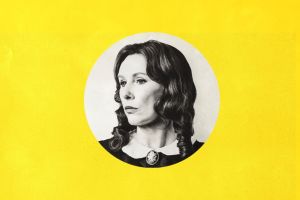Robert Shaw On … Isadora Duncan
Teddy and Topsy – Isadora Duncan’s Love Letters to Gordon Craig is an interpretation of a love story through dance and words. With Nellie McQuinn as Isadora Duncan and Hugh Bonneville as the voice of Gordon Craig, this piece explores two artists who loved each other but were never meant to be. Creator Robert Shaw talks about Duncan and the many myths surrounding this outstanding dancer.
Isadora Duncan was the greatest dancer of her era. In terms of her influence, some would say the greatest of any era.
So why, 100 years after her heyday, is there still controversy and misunderstanding around her? What is her place in history as a dancer? As a woman? Did she breathe new life into classical dance? Or did she reject ballet? Was she an early feminist, as some claim? What are the myths that still surround her and what is the truth?
Let’s puncture one myth from the top. Isadora didn’t reject ballet. She ignored it. It was easy to ignore. Ballet in 1900 meant the Russian Imperial Ballet. There was no other significant ballet troupe in the world.
Isadora’s reception in Russia, on her first tour there in 1904-5, was polarised and revealing. Writing from St Petersburg to her lover, the theatre designer Gordon Craig, in late December 1904, she described the reaction to her performance: “The yellow dog and the gas man liked it – and so apparently did all the Kings and Queens in the audience…”. Not all conductors and musicians were as keen, some of them attempting to sabotage her with poor playing.
Only five years later, when Diaghilev brought the Ballets Russes to Paris, he and his leading dancer, Nijinsky, acknowledged Isadora’s importance: “She has dared to give liberty to movement. She has opened the door of the cell to the prisoners.”
Dance technique has developed much since her day. Isadora’s eternally enduring importance is in her influence on its development, but mostly on interpretation.
Isadora Duncan was an unmarried mother of two children, in a strict, male-dominated age. Yet her career went from strength to strength following the births. Nothing, it seemed, could dent her popularity.
Feminist? I doubt she would have understood the word. Her love letters probably contain too many references to being “obedient”… But a woman in a man’s world, determined, sure of herself (or in spire of herself), playing by her own rules, successful on her own terms without compromising her femininity or ever exploiting her sexuality to get to the top? Without question.
The mother of modern dance? What she did was revolutionary in three ways. She popularised a form of classical dance based on beauty rather than sexuality. Second, her influence on technique and interpretation has been acknowledged. Finally, she showed how a woman can succeed by determination and talent while staying true to herself. She’s a true hero.
Teddy and Topsy – Isadora Duncan’s Love Letters to Gordon Craig runs from the 5-29 August (excl 17 and 24) at Hill Street Theatre.












